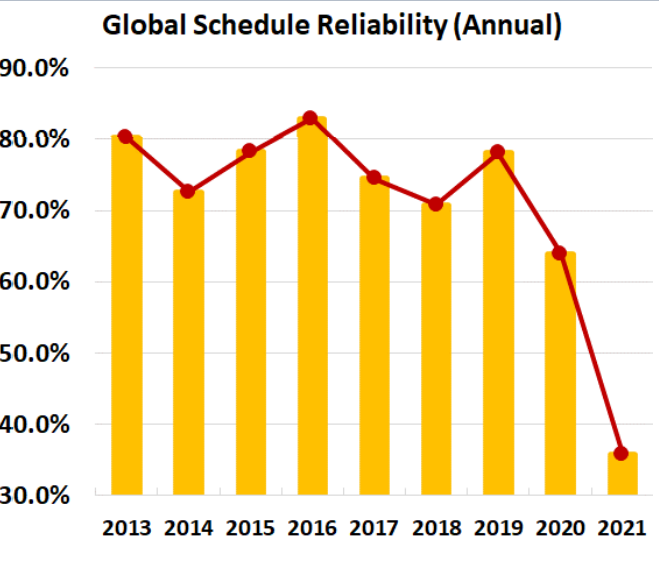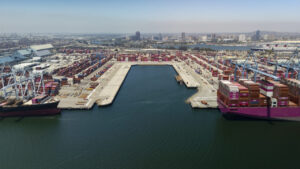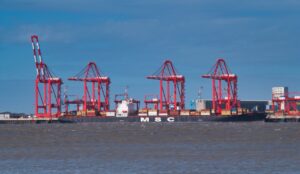Schedule reliability for the world’s container carriers was recorded at its lowest ever levels for 2021.
The 2021 Global Liner Performance report from Sea-Intelligence Maritime Analysis found that scheduled reliability dropped to 35.8 per cent for 2021 – a stunning drop from 2020’s levels of 63.9 per cent.
The average delay for late vessel arrivals has been on an upwards trend since the lowest recorded delay of 3.19 days in 2016.
In 2021, the figure nearly touched the 7-day mark, reaching 6.86 days. The average delay for all vessel arrivals recorded a sharp increase in 2020, and an even sharper increase in 2021, with the 2021 figure crossing the 4-day mark for the first time, Sea-Intelligence CEO Alan Murphy wrote.
Danish giant Maersk was the most reliable top-14 carrier in 2021 with schedule reliability of 46.4 per cent, followed by Hamburg Süd at 40.9 per cent.

Seven carriers recorded schedule reliability of 20 to 30 per cent, and only Evergreen recorded reliability of under 20 per cent.
Despite being expected to bring in almost $200 billion in profits for 2022, none of the top-14 carriers recorded a year-on-year improvement in reliability, Sea-Intelligence wrote.
The well-documented global congestion in ports and hinterland connections has thrown shipping schedules into turmoil with blank sailings, omitted calls, and new shipping routes all a result of choked up supply chains.
Regionally, all six major East/West trade lanes recorded double-digit yearly declines in schedule reliability, with the Asia-Europe and Asia-North America West Coast trade lanes recording year-on-year declines of over 40 percentage points.
In terms of the delays, all six trade lanes follow the same general trend: in 2021, Asia-North America West Coast recorded the largest increase in the average delay for late vessels, crossing the 12-day mark.
Asia-North Europe was not far behind, having crossed the 8-day mark.








